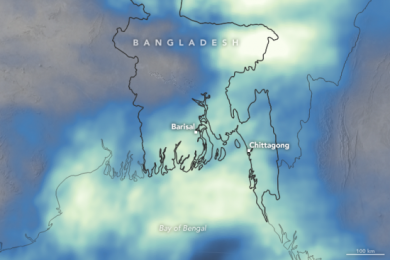Cyclone Roanu reached Bangladesh on 21 May 2016, leaving 26 people and affecting hundreds of thousands others. The storm caused heavy rains which led to floods and landslides across the coast of the country, affecting fifteen districts.
In order to respond to this disaster, the International Charter of Space and Major Disasters was activated on the 25th of May at the request of the Asian Disaster Reduction Center (ADRC) on behalf of the Bangladesh Space Research and Remote Sensing Organization (SPARRSO). The Asian Institute of Technology has been designated as the project manager for this activation.
During the side-event conducted by the British NGO Practical Action and entitled “Science for climate risk management and climate justice” on the 26th of May 2016 in the Bonn International Conference Center, Mr. Saleemul Huq, Senior Fellow in the Climate Change Group at the International Institute for Environment and Development (IIED), indicated that Bengladeshi institutions are well prepared for these types of hydrometeorological hazards. He wrote that “…despite the number of deaths following Cyclone Roanu, the very low number of fatalities is actually a success story where better disaster preparedness has avoided the loss of human lives on a much greater scale” (http://www.iied.org/cyclone-roanu-hits-bangladesh-story-loss-damage-avoided).

